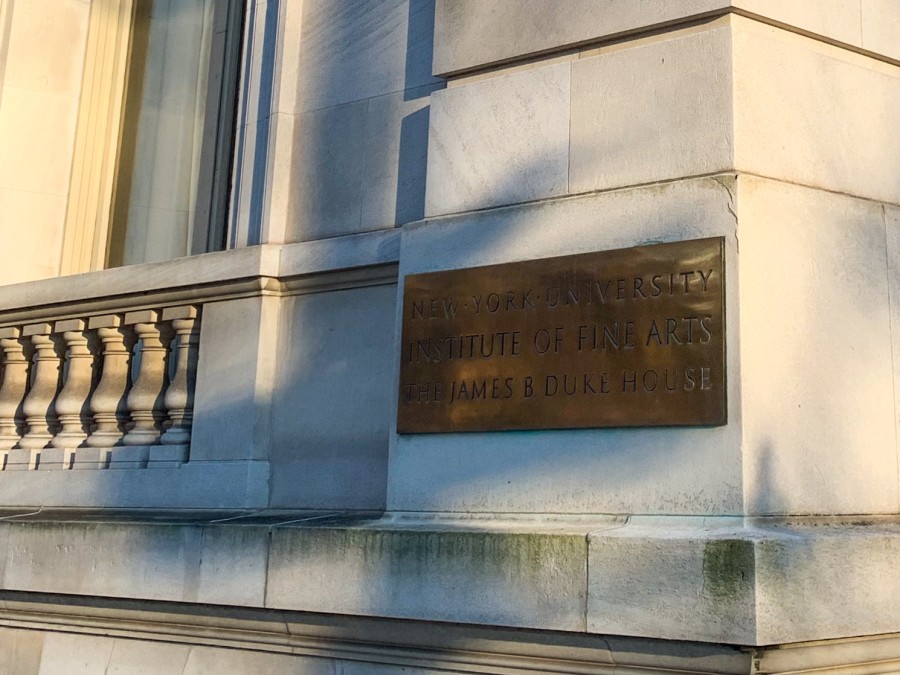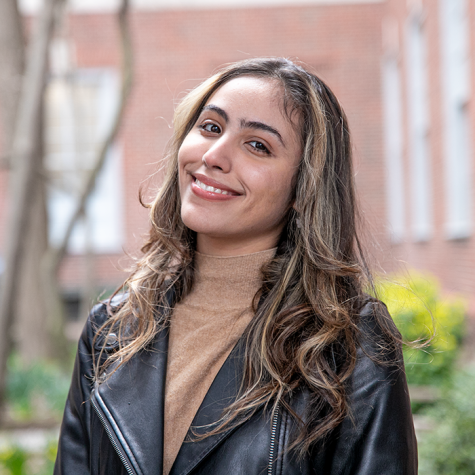Students pressure NYU admin to keep Institute of Fine Arts building open
After the Institute of Fine Arts administration announced that the program’s library would close April 28-May 3, students were left scrambling the week before finals.
The James B. Duke House of NYU’s Institute of Fine Arts is located at 1 E. 78th St. Administrators had previously planned to close the building from April 28 to May 3. (Staff Photo by Manasa Gudavalli)
April 28, 2022
After Institute of Fine Arts students protested the scheduled six-day closure of the department’s main building for a corporate event, the administration canceled its plans on April 27. Several students said they had been left with a week to rearrange their study plans for final exams.
Institute director Christine Poggi said the library will now be open during regular hours on April 29, April 30 and May 1. The Institute will also extend its library hours during the weekends of May 7 and May 14.
Poggi had emailed students and faculty members on April 21 that classes would be moved online and that the James B. Duke House, which houses the library, would have restricted access so that the institute could host a large-scale private event from April 28 to May 3. Five students told WSN that a worker said the building would be used for the Met Gala afterparty on May 2.
“What they are saying is so inaccurate that it’s truly shocking,” Poggi told WSN on April 26, regarding student complaints before the recent announcement. “It’s not finals. The library’s open right now, and they can check out any books they want that are checkoutable. It’s offensive to me, making it sound more shocking than it is.”
Poggi provided a list of other libraries for students to use if their materials were not available via NYU’s library system, including the Metropolitan Museum of Art and The Morgan Library & Museum. She also advised students in a second email on April 21 to scan any necessary materials and use other libraries at NYU.
A second-year master’s student — who asked to remain anonymous due to fear of retaliation from the university — said they were worried that they would forget or not be able to scan all of their books before the building closes.
“A lot of it is up to students to figure out what they do need, but it changes day by day,” they said. “I have a professor who will send me an email and be like, ‘Here’s the source that you need, and it happens to be a book that’s in the library.’”
Abigail Manville, a second-year master’s student and research assistant, organizes her week around her two-and-a-half-hour commute to and from class. She said she works in the institute library between classes and panicked when she originally heard about the building closure.
“They’re looking at this as an individual thing, when really they should have looked at this as like a community-wide issue,” Manville said. “It doesn’t make sense for all of us to be scanning hundreds and hundreds of pages in less than a week.”
After the initial announcement, institute graduate students drafted an open letter to NYU provost Katherine Fleming and Graduate School of Arts and Sciences dean Lynne Kiorpes demanding that an extension be provided for all final projects and that the institute administration create a plan to communicate with its students more efficiently.
At the time of publication, the letter had garnered more than 200 signatures. It was also signed in support by the institute’s Graduate Student Alliance, the NYU Graduate Student Organizing Committee and the Graduate School of Arts & Science Graduate Student Council. Manville and other students said they hand-delivered the letter to a security guard at the Office of the Provost and a letterbox at the GSAS dean’s office.
“The closure of the IFA building happened with very little notice and greatly impacted students’ ability to finish their final projects and prepare for exams,” GSAS senator Christopher Van Demark wrote to WSN. “This is unacceptable, and we will do our best to make sure this never happens again.”
The email also said the money raised during the corporate event would be donated to student fellowships. A first-year master’s student who also asked to remain anonymous said they and other students were unaware of which fellowships the institute was referring to.
“I’m paying $100,000 for this tuition, excluding living expenses, excluding moving, excluding the amount of therapy I have to pay for after this institution, and then my education can be a sacrifice for maybe one or two students,” they said.
Poggi previously said that the event would require the attendees to provide proof of a negative COVID-19 test, and the building will be disinfected before students can return.
“It comes down to a communication issue,” Manville said. “We think that our letter still stands and we still very much want an accounting of where this money is going, how it’s benefiting students and a clear communication plan going forward.”
Contact Maria Freyre at [email protected].
























































































































































